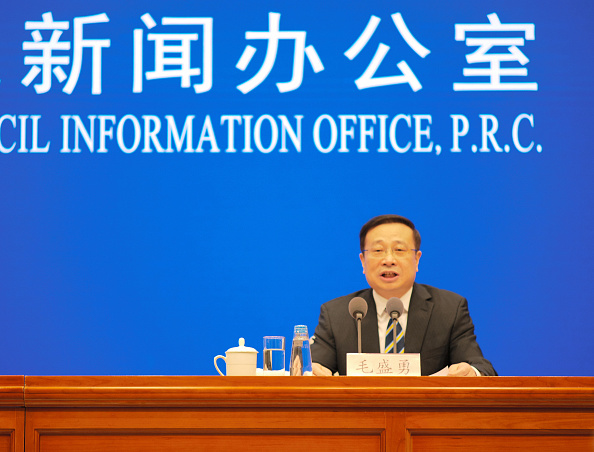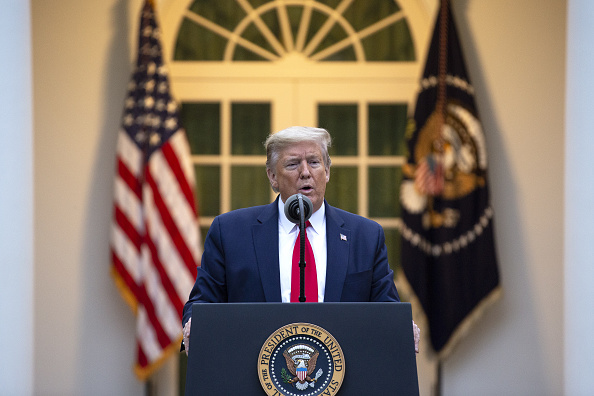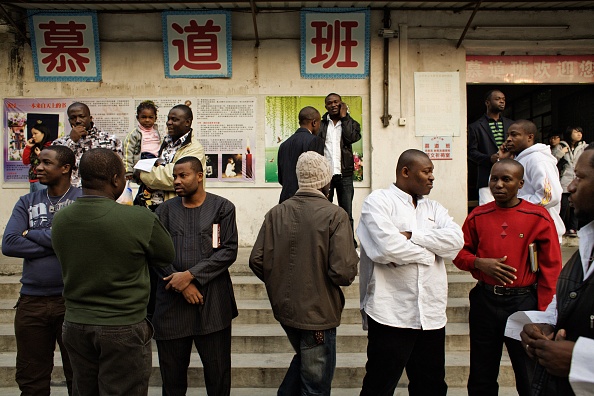
 Pandemic World
Pandemic WorldThe coronavirus continues to exact a heavy toll on global health and world markets. China reported its lowest growth rate in decades today, with its economy contracting by 6.8% according to government data, the first downturn reported since Mao Zedong died in 1976. After three months of halted trade and business, the contraction comes as no surprise to economists, and the road to recovery is projected to be a long one.
In the midst of China's economic contraction, Japan and the U.S. have signaled plans to shuffle their companies out of China. Japan declared last week that it will spend over $2 billion to move its multinational companies out of its neighbor and into Southeast Asia or back home to Japan. While some U.S. multinationals are also making plans to move operations, a recent survey showed that few U.S. companies are actually expecting to leave China, despite increased long-term uncertainty over a potential U.S.-China decoupling. Doug Bandow, Senior Fellow at the CATO Institute, writes more on why the two countries must cooperate in his latest piece for China-US Focus.
Meanwhile, scientists from the University of Cambridge and Germany tracing the evolution of the virus say that the coronavirus outbreak could have started as early as mid-September, and the Chinese city of Wuhan may not be where it began. The Wuhan government has revised its official death count, bringing the total up to 3,869 from 2,579, while confirmed cases in Wuhan went up to 50,333 from 50,008.
 Who will fund WHO?
Who will fund WHO?President Trump said he would halt American funding for the World Health Organization this Thursday, alleging that the international body is "very China-centric." His decision has drawn an international outcry as the virus toll mounts all over the world. In response China said that the "U.S. decision will weaken the WHO's capabilities and undermine international cooperation."
The void left by the U.S. could give China an opportunity to take more of a leadership role inside the organization, and global public health at large, according to experts, although China currently contributes a small percentage of the WHO's overall funding. China has already been at the forefront of the international response to the pandemic, offering health aid in the form of personal protective equipment (PPE) and medical personnel to countries that have been hit especially hard by the virus. President Xi and Premier Li Keqiang this week made multiple calls to leaders in Russia, Poland, and elsewhere, extending aid and coronavirus-related support.
 Xenophobic Backlash
Xenophobic BacklashSince the coronavirus broke out, there has been a surge of xenophobia and racism all over the world. A dozen African countries issued a joint complaint this week over abusive and discriminatory treatment of their citizens in China. Hundreds of Africans, most from Nigeria, were kicked out of their homes in Guangdong this week and barred from entering shops, restaurants, and hotels. Some African restaurants were temporarily closed down, while other businesses, including a McDonald's, posted signs banning black people from the premises. McDonald's has since apologized.
Meanwhile, there has been a rise in anti-Chinese sentiments in the U.S., the U.K. and online. President Trump has repeatedly labeled COVID-19 the "Chinese virus", likely contributing to a rise in racist incidents and comments directed toward Asian-Americans tied to fears of coronavirus.
Prepared by China-US Focus editorial teams in Hong Kong and New York, this weekly newsletter offers you snap shots of latest trends and developments emerging from China every week, while adding a dose of historical perspective.
- 2020-04-11 The Long Road Back to Normalcy
- 2020-04-03 Shifting Gears
- 2020-03-28 Cooperation or Confrontation
- 2020-03-20 World in Turmoil
- 2020-03-13 Global Emergency
- 2020-03-06 Global Strains
- 2020-02-28 Coronavirus Gone Global
- 2020-02-22 The Virus Continues
- 2020-02-15 Asserting Control
- 2020-02-08 A Novel Outbreak
- 2020-01-31 Global Health Emergency Declared
- 2020-01-24 Celebrations Grounded
- 2020-01-17 Signed, Sealed, Delivered
- 2020-01-10 Ink the Deal
- 2019-12-20 A Level Playing Field
- 2019-12-13 It’s a (Limited) Deal!
- 2019-12-06 An Arbitrary Deadline
- 2019-11-22 On or Off Again?
